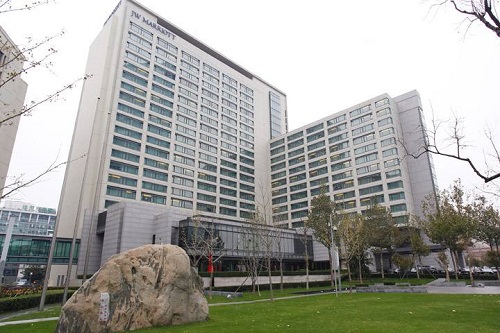

The value and ROI brands deliver to hotel owners have become more arguable as technology and distribution platforms prove ever more to even the field for those properties absent a flag. But in an age where hotel companies are valued expressly by their ability to expand and grow their brands, losing ground is not an option.
This was bandied during the panel, "The Big Debate: To Brand Or Not To Brand", during The Annual Hotel Conference here at the Hilton Deansgate.
Franchising, a concept born in the U.S., but which is steadily gaining a foothold in the UK, is the mode of growth branded hotel companies, such as Marriott International and Hilton, pursue—a strategy that removes a large investment requirement and opens up substantial fee streams.
"Our business model is shifting. Franchising is our growth vehicle and especially in limited-service," said Tim Walton, RVP of international hotel development for Marriott International, where he is responsible for overseeing the development of the company's brands across Western Europe.
Marriott is the largest purveyor of hotel brands in the industry, a feat it attained after its acquisition of Starwood Hotels & Resorts last year. Marriott now totals 30 brands, including W, Westin, Hampton and Aloft. And, in Walton's opinion, the company may have not reached its brands limit, telling the audience that, "We probably will have more brands by next year. There is more room."
And though publicly traded hotel companies are measured by their ability to add new units, Walton did admit that there isn't a branded solution for every hotel. "Brands are not a panacea. They don’t work everywhere," he said.
OTAs Versus Brands
One thing is proof positive, hotel brands no longer dominate the landscape when it comes to customer acquisition. Online travel agencies, including Expedia, have in a short amount of time gained ubiquity in the customer booking process. That presence grows annually as it spends, in Expedia's case, some $3 billion per year on marketing alone.
More and more, brands have lost booking hegemony because, as Chris Michau, VP, Global Partner Group, Expedia, opined: "Customers are agnostic. They are shopping for the right product," he said, with Walton to his left.
Hotel brands and OTAs continue to be polite toward one in another, especially at hospitality-focused conferences, even though brands constantly assail them for, amongst other things, their oftentimes high commission costs. In a public setting, however, there is a sense of kumbaya.
"When we partner, hotels can target specific customers better; it's about how we can work together," Michau said.
"We still compete with Expedia for customers," Walton parried, explaining to the audience his company's large investment in its websites and strategies such as discounted rates for Marriott Rewards members "to incentivize people to use our site," he said.
In other ways, Marriott does collaborate with OTAs in a partnership sense, case in point, Vacations by Marriott, which is powered by Expedia.
As a hotel owner, John Brennan, CEO of Amaris Hospitality, is adroit at putting the brand versus OTA debate into a disinterested perspective. He refers to their relationship as many have before him: "frenemies." As an owner of hotels, Brennan constantly looks for the optimal business mix when it comes to distribution of Amaris' product, which includes brands such as Hilton, ibis, Doubletree and Jurys Inn. He is not adverse, then, to paying higher distribution costs if those costs come with a higher rate.
Above all, "We want to keep our relationships with customers," Brennan said.
"It's all about ROI and return on capital," he continued. "Big brands will give you a revenue premium. But what you need is a profit premium. We look for bandwidth in rate."
Copyright 2006-2025 Shanghai Sinoexpo Informa Markets International Exhibition Co., Ltd. All rights reserved